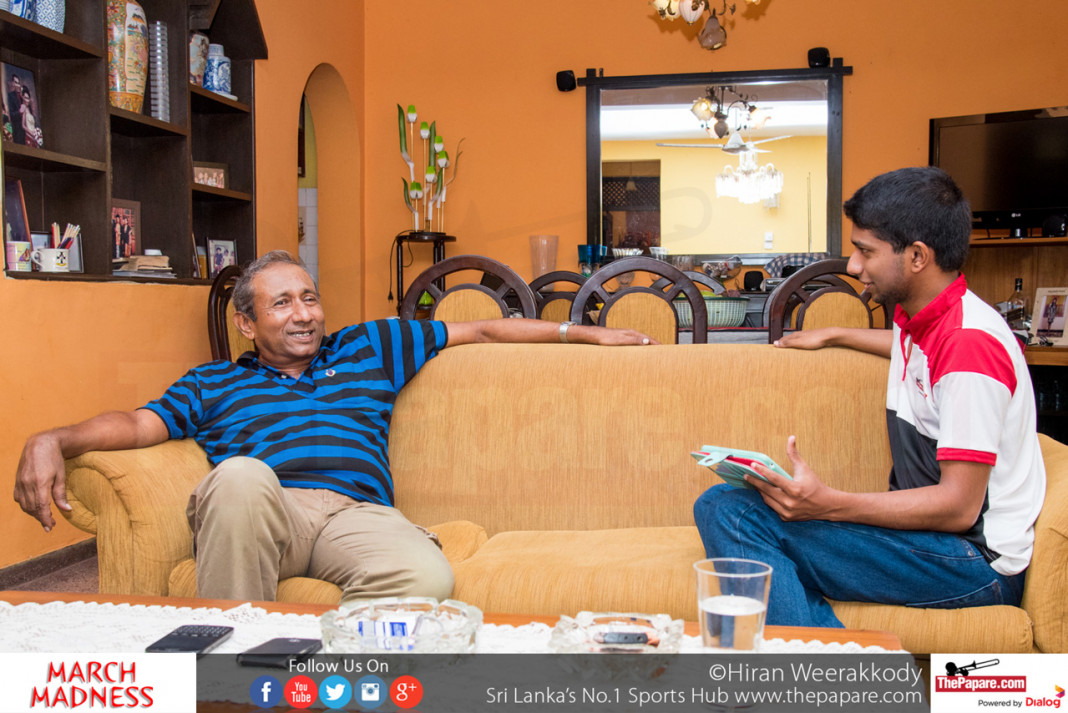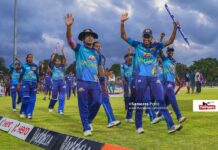During its unrivalled 138 year-old history, there had been few unique moments on the grand stage.
If you may wonder, were there any Thomians in the past few decades who captained his side at two Royal-Thomians? Or were there any brothers in the same family who led opposite schools? The simple answer will lead you to an endearing ‘old-school’ gentleman, young at heart. Affectionately known as ‘Kaari’, Prabodha Kariyawasam’s appealing personality is adored by many, making him a prominent figure among both Royalists and Thomians. For a person with a plethora of achievements, his modesty and humbleness stands unparalleled, appraised and respected in the fraternity.
With a few days to go for the ‘Battle of the Blues’ encounter, he spoke exclusively to www.thepapare.com to share his memories and experiences dating back more than 5 decades.
Prabodha Kariyawasam made his Royal-Thomian debut in 1966, at the age of 16. “I was lucky to be called up to the 1st XI when I was 15. Although we had 9 freshers in that team, we won every game during the season except for a draw against St. Peter’s. It was a dream come true to play with two of my boyhood heroes, skipper Anura Tennekoon who had already played for Sri Lanka by then and Sriyantha Rajapakse. At the big match, it was a delight to see Sriyantha Rajapakse’s century, which came at a time when Anura Tennekoon was dismissed early”
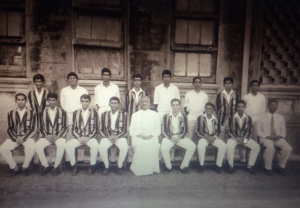
Kariyawasam had a tough task as the captain in 1969 to revamp a team that had lost a fair amount of senior players. “Some of the youngsters were needed to be guided more and as the captain it was a new challenge to me, especially being schoolboys”. He recalled his defeat in 1969 as the captain, “That loss was after 18 years and it was a bitter pill. And I had a lot of answering to do when I went back to school (smiles). Even for the players it was hard. Back then, there were no luxuries, only studies and sports. There was nothing else to savour in our lifetime and losing the Royal-Thomian felt like the end of the world”. He explained that no matter how confident you may be, a few mistakes can cost you an entire game. “We allowed Royal to get on top early in the match and we couldn’t recover from that. Royal held some brilliant catches in the second innings which was also a turning factor”. He recalls being devastated, returning to the school van in tears after the game when one of his masters, Mr. Asirwatham sat by his side and consoled him “Son, it is only a game”. “That was the greatest moment for me in that game because otherwise I wouldn’t have been able to take that defeat”, he said.

The lesson he learned from the pain helped him in the coming years. He explained how it has benefitted in later life to grow as a person.
He remembers approaching Thomian captain Kapila Wijegunawardene in 1983 to sympathize with him after the big match loss, knowing how the young man must have been feeling. It was sheer elation for him when S. Thomas’ cruised to a convincing victory in 1988, a hoodoo broken after 24 years.

After more than 50 years, he is still in touch with some of his Royal counterparts. This year both teams in 1967 will be celebrating a reunion, 50 years since playing at the Royal-Thomian. The winning captain of Royal in 1969, Eardley Lieversz is one of his closest friends. Lieversz, currently residing in Sydney, Australia still relies on him to send him souvenirs every year. “The relationships built on the field among Royalists and Thomians, it is something very special”
Prabodha Kariyawasam hails from a family of cricketers. His two younger brothers played for Royal. One brother captained in 1975 and the other was the deputy under Ranjan Madugalle at the centenary game in 1979. “Most of the time we read cricket books, played cricket on the road and of course I had to tolerate the Royal Cycle Parade that came home on match day eve (Laughs)”.
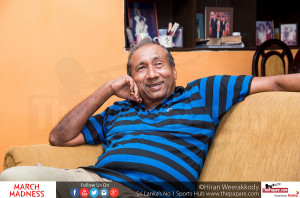
After his captaincy in 1970, he was absorbed to the mercantile sector where he began to work for Mackwoods. “Back then, there was no professional cricket as such and we had to fend for ourselves. We went by buses and bought our lunch at a concession rate”. He continued to play for SSC at the Sara Trophy and was part of a champion team that featured greats such as P.I. Pieris, Mevan Pieris, Neil Chanmugam, Nihal Kodituwakku, Duleep Mendis, Sriyantha Rajapakse, under the leadership of Anura Tennekoon. “It was a fantastic team, they were invincible” he said.
His career at Mackwoods spanned 38 years until his retirement. Today, his genial persona commences the day with an early morning walk, “I take different routes every day, to say hi to as many neighbours as possible”. He communicates with old friends through email, engages in a business venture and watches Cricket and Rugby on TV and during weekends he visits his granddaughter.
A few years ago, he was invited by the joint organizing committee alongside former Royal Cricketer Rochana Jayawardene to compile a framework of rules and regulations for the Royal-Thomian which is still used as a handbook with gradual amendments from both sides. He was welcomed as a Guest of Honour at the Royal-Thomian 2013 along with J.D Wilson, Royal captain in 1964. “Ironically both of us were losing captains” he chuckles. Sadly, in the same week, his father expired. But his friends consoled him, “It is only fitting that your father passed away during the Royal-Thomian. He had lived for Royal-Thomian cricket for so long”
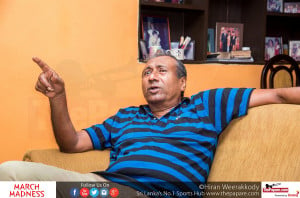
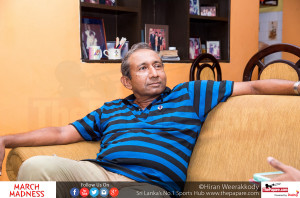
Finally he concluded with a valuable piece of advice for the youngsters, “There is no substitute for hard work. Push yourself to the limits, realize your mistakes and correct them to reach your ultimate goal”.

